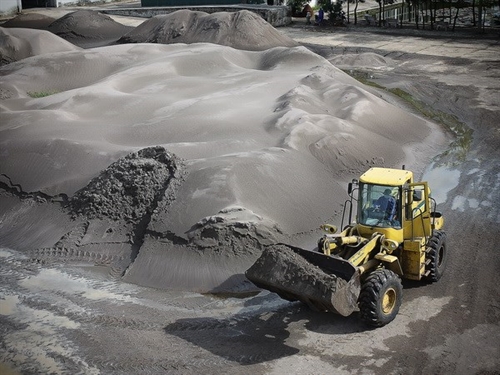 Society
Society

Implementing the Extractive Industry Transparency Initiative (EITI) will help Việt Nam fight corruption in the resources extraction sector, participants were told at a workshop held yesterday in Hà Nội.
 |
| Raw ore processed at a factory in central Hà Tĩnh province. Việt Nam needs to accelerate joining the Extractive Industry Transparency Initiative, an expert said. - VNA/VNS Photo |
HÀ NỘI — Implementing the Extractive Industry Transparency Initiative (EITI) will help Việt Nam fight corruption in the resources extraction sector, participants were told at a workshop held yesterday in Hà Nội.
EITI is a global standard for governance when it comes to a country’s oil, gas and mineral resources, and is implemented by governments in collaboration with companies and civil society.
Countries implementing EITI disclose information on tax payments, licenses, contracts, production and other key elements around resource extraction.
Participants at the workshop pointed out that Việt Nam had compiled a quite complete set of legal documents on the extraction of resources and oil, including probing, exploiting, processing, using resources, as well as controlling related budget collection and spending. However, a gap exists between law and its implementation in reality.
Việt Nam has recorded tax revenue losses in resource exploitation, Trần Thanh Thủy, co-ordinator of the Minerals Alliance said, adding that many companies make use of preferential tax policies to evade taxes.
Mining companies fail to declare their real production capacity in order to reap illegal gains, leading to a loss of state revenues, Thủy said, citing a figure in which losses from resource extraction account for about 5 to 25 per cent of the Gross Domestic Product (GDP), according to the General Statistics Office of Việt Nam in 2015.
“Việt Nam has approached EITI since 2007; however, after 10 years we have yet to make any commitment to the initiative. Việt Nam needs to accelerate joining the EITI,” Thủy stressed.
The involvement of Việt Nam in EITI will contribute to eliminating tax evasion in resource extraction and help better manage minerals through transparent licenses, production and budget collection, she added.
Discussion at the workshop ended with the conclusion that the implementation of EITI will force authorised agencies and enterprises to take responsibility for providing transparent information about their activities, helping bring the “darkness” of the extractive industry to light.
Đậu Anh Tuấn, head of the Legal Department at the Việt Nam Chamber of Commerce and Industry, affirmed, “Việt Nam can fully implement EITI. The biggest challenge is the level of commitment on openness and explicitness.”
Việt Nam is well known for the rich quantity and large reserves of mineral resources. Oil is estimated to make up 4.3 billion tonnes in reserves, contributing greatly to GDP growth. Difficulties in managing these resources have led to a loss in their value.
Prime Minister Nguyễn Xuân Phúc has also ordered Ministry of Industry and Commerce to consider implementing EITI to improve the efficiency of the minerals extraction industry. This content has been put into the action programme of the government to implement socioeconomic development targets over the course of 2016 to 2020.
EITI is being implemented by 56 countries across the world, including developed ones, such as the United States, the United Kingdom, and Germany. Việt Nam’s neighbouring Southeast Asian nations, such as Indonesia, Myanmar and Timor Leste have also confirmed to have met all EITI requirements. — VNS